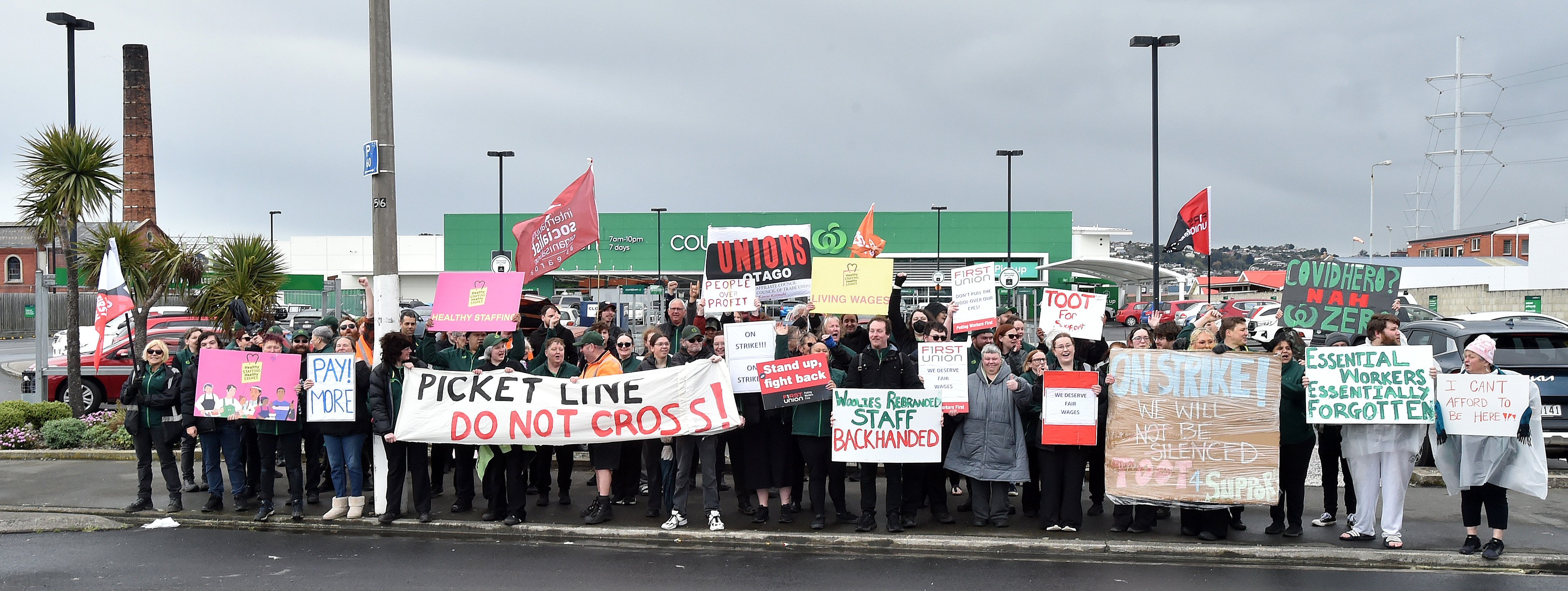
The supermarket giant announced yesterday it had ratified a new collective agreement for union members across the country which included a minimum wage increase of 6.8% over the next two years and the introduction of a multi-skilled hourly rate.
A minimum pay rise of 3.3% in the first year would increase the minimum hourly rate to $25.85, followed by a 3.5% rise in the second year.
One-off payments of $175 to union members contracted to 32 hours or more per week and $80 to those contracted for less than that, would also be made in time for Christmas.
They would also have access to benefits including 5% off all grocery items, 10% off fresh and own brand products, 12 weeks of paid parentalleave for the primary caregiver along with a 23/7 mental health support service.
In a statement, Woolworths New Zealand managing director Spencer Sonn said it was important to have the agreement finalised and ratified by First Union members.
"We're pleased to have landed this agreement in a place that fairly rewards our team for the work they do every day, and balances the current economic climate.
"We would like to thank First Union for representing team members’ views throughout this process and look forward to a constructive working relationship over the coming months and years."
The new agreement comes into effect immediately, with backpay to July 1.
First Union organiser Angus Wilson said the offer represented an "all-round good improvement" upon the previous contract and one that its members should be proud of.
Union members from Woolworths Dunedin Central, South Dunedin, Mailer St, Andersons Bay and Mosgiel stores took part in a two-hour strike in September, after about 300 across the city participated in initial strike actions in August.
It had been the first time most of the workers from Dunedin stores had taken strike action and had "very much enjoyed themselves", he said.
"They got a taste of what it’s like to have a little bit of control over their workplace and they really, really ran with it.
"When we come back to bargain in 2026, I expect most of them to be having that top of mind when we start the claims process.
"I expect them to be very keen and very excited for more action in the future."
Mr Wilson said the six months of negotiations had led to some good discussions with Woolworths about staffing levels, higher workloads and addressing security concerns on the floor.
Things were going in the right direction, but Mr Wilson said more action needed to be taken.
The ongoing concerns for staff at Woolworths Dunedin Central were a lack of staffing and the stress it caused them.
While a higher wage made it easier to get up in the morning and go to work, it did not address the root cause of the problem, Mr Wilson said.
First Union national secretary for retail Rudd Hughes said while he was pleased pay negotiations had been completed before Christmas, the new agreement did not establish a minimum living wage or penalty rates for nights and weekends and had not re-established Woolworths as the wage leader for supermarket workers.
"Significant pressure" had been placed on Woolworths workers and union organisers during negotions, he said.
"Woolworths did not want us to query their profitability or the relative financial impact of their $400 million rebrand, and we lost many hours at the bargaining table before meaningful negotiations began.
"It took an escalating course of industrial action to let the company know workers were serious about better pay and safer staffing and I’m proud of our members’ courage and belief."
Woolworths declined to comment.












